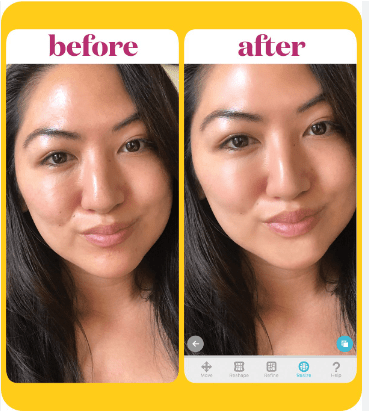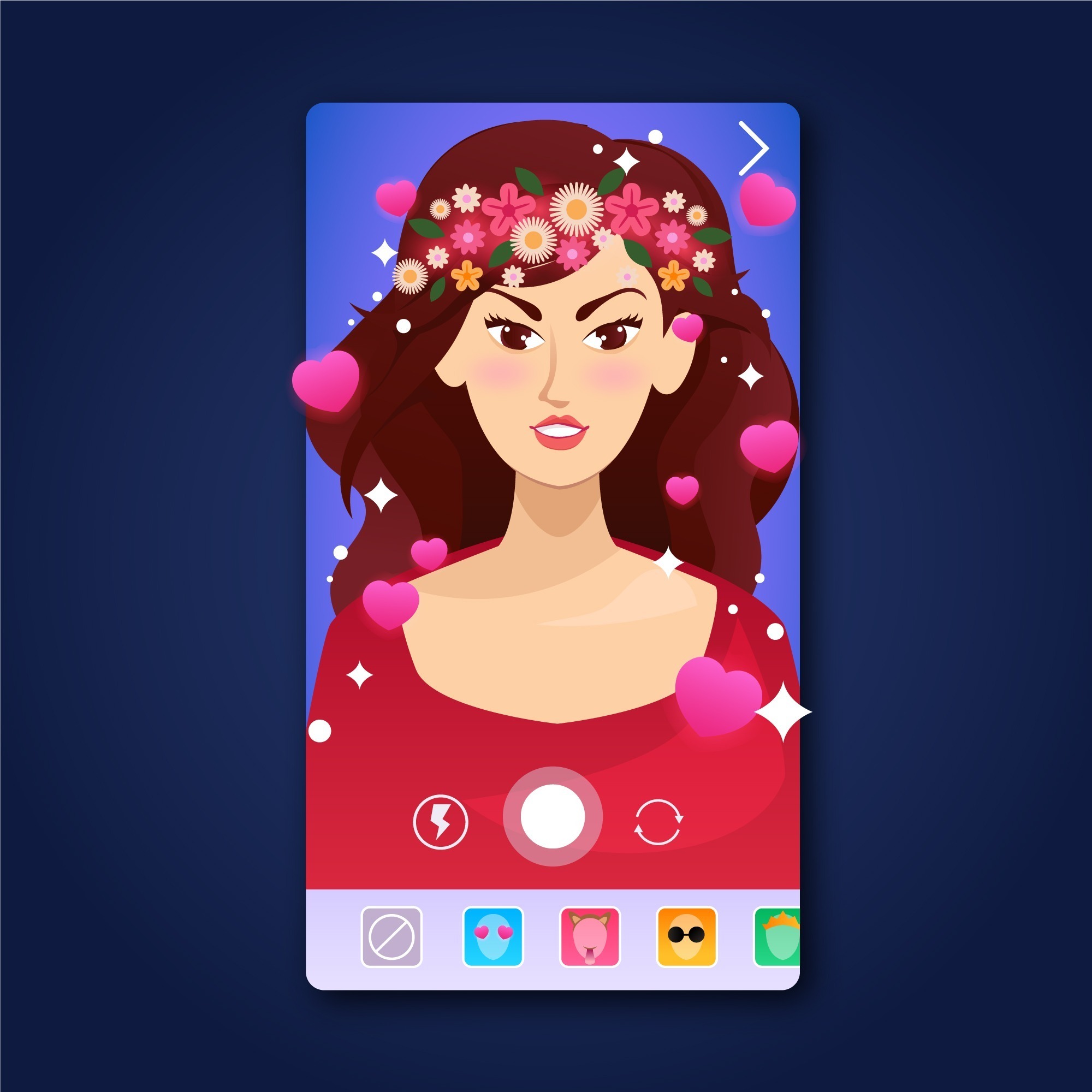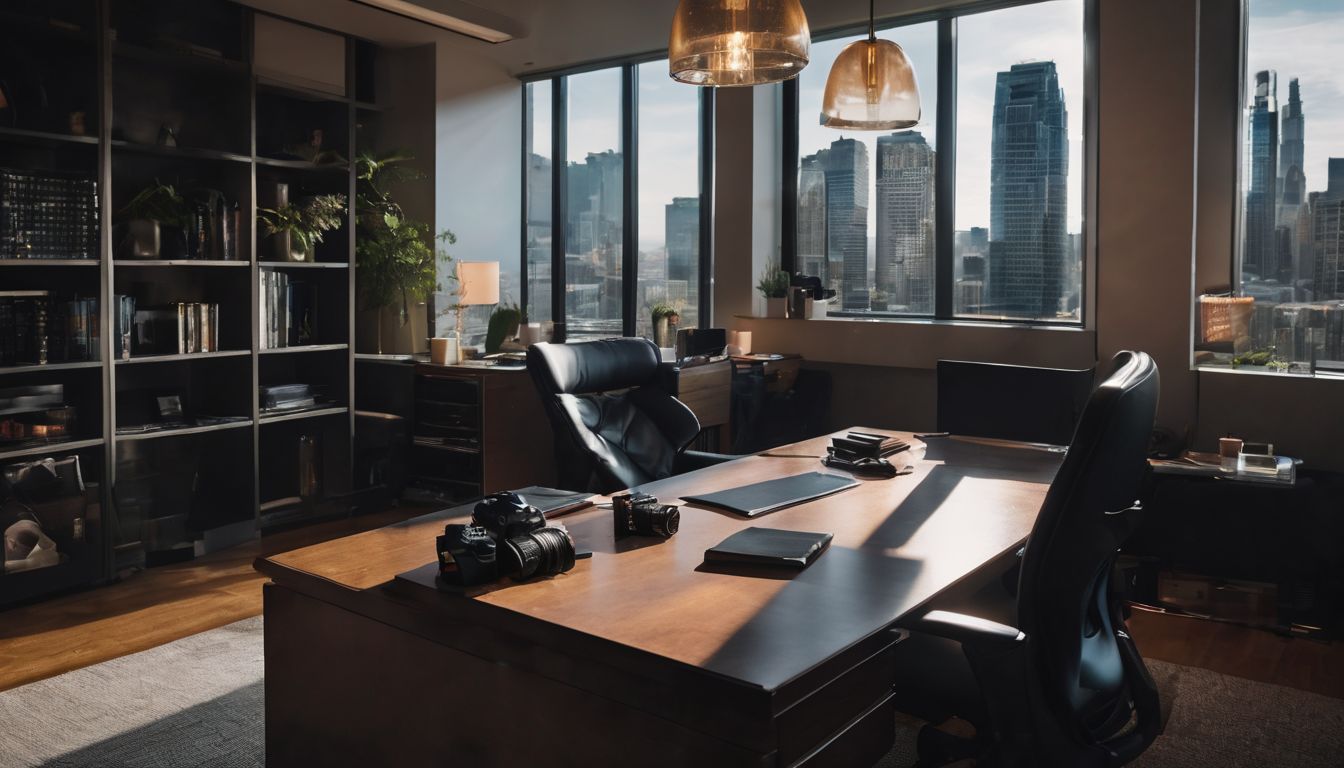Are you clicking through Instagram filters to find the perfect aesthetic for your post? Nearly 500 million people use this feature daily, emphasizing its influence. This blog will delve into how these filters affect trends, impact mental health and shape perceptions of beauty.
Key Takeaways
- Instagram filters have a significant impact on aesthetic trends and user preferences, shaping beauty standards through augmented reality effects.
- The use of filters can negatively affect mental health and self-esteem, contributing to body image issues and feelings of inadequacy.
- Filters often perpetuate unrealistic beauty ideals, highlighting the importance of promoting diversity and authenticity on social media platforms like Instagram.
The Influence of Instagram Filters on Aesthetic Trends/
Instagram filters have had a profound impact on aesthetic trends, shaping user preferences and influencing beauty standards through the use of augmented reality (AR) filters.
Examining the impact of AR filters on Instagram
Instagram’s augmented reality (AR) filters have revolutionized the way users interact with content on the platform. These AR filters add a new dimension to photos and videos, significantly enhancing their visual appeal.
Businesses use these filters as a marketing tool to promote products or create brand awareness. However, it goes beyond mere entertainment; some experts argue that these AR effects may alter our perception of reality over time.
Many Instagram users apply these filters to attain a certain look, often akin to unrealistic beauty standards popularized by celebrities and influencers. Overreliance on such digital manipulation tools could potentially skew self-perceptions and contribute to body image issues among frequent users.
How filters shape user preferences and beauty standards
Instagram filters have a significant impact on shaping user preferences and beauty standards. With the ability to enhance or alter appearances, filters have become an integral part of creating the idealized image on social media.
These filters often emphasize certain features like flawless skin, bigger eyes, and perfect symmetry, leading users to aspire towards these unrealistic beauty standards. As a result, there is a growing pressure to conform to these digitally enhanced ideals in order to receive validation and acceptance online.
Moreover, the constant exposure to filtered images can distort our perception of reality and create an unattainable standard of beauty. It can lead individuals to compare themselves unfavourably with others who seemingly fit into these narrow ideals.
This comparison often contributes to feelings of inadequacy, low self-esteem, and body dissatisfaction among users. The influence of filters on user preferences not only affects individual perceptions but also has broader implications for society’s overall understanding of beauty.
In conclusion, Instagram filters play a pivotal role in shaping user preferences and influencing societal beauty standards. They perpetuate unrealistic ideals that are difficult for most people to attain naturally.
The Effect of Filters on Mental Health and Self-Esteem

Filters on social media platforms like Instagram have been found to significantly impact mental health and self-esteem, with research suggesting that the use of filters can contribute to negative body image and increased feelings of inadequacy.
The psychological implications of filtered images
Filtered images on social media platforms like Instagram can have significant psychological implications. When we see perfectly edited and filtered photos of others, it’s easy to compare ourselves and feel inadequate.
This can lead to feelings of low self-esteem and body dissatisfaction. The pressure to look a certain way, fueled by the popularity of filters that enhance features or make skin appear flawless, can be detrimental to our mental health.
It is important to be aware of these effects and promote self-acceptance and authenticity in our use of social media filters.
The role of social comparison and body dissatisfaction
Social comparison and body dissatisfaction play a significant role in the impact of Instagram filters on mental health. When users see filtered images showcasing idealized beauty standards, it can lead to negative self-perceptions and feelings of inadequacy.
Comparing oneself to these edited images creates a distorted sense of reality and promotes unrealistic beauty ideals. This can be especially damaging for individuals already struggling with body image issues or low self-esteem.
The constant exposure to these filtered images can perpetuate feelings of dissatisfaction with one’s own appearance, leading to increased pressure to look a certain way and even potentially fueling unhealthy behaviours such as extreme dieting or cosmetic surgeries.
The Importance of Diversity and Authenticity
Filters can perpetuate unrealistic beauty ideals, making it crucial to emphasize the need for representation and inclusivity on social media platforms like Instagram.
How filters can perpetuate unrealistic beauty ideals

Filters on social media platforms like Instagram can play a significant role in perpetuating unrealistic beauty ideals. When users apply filters to their photos, they often enhance certain features, blur imperfections, or change their appearance altogether.
This can create an unattainable standard of beauty that is difficult for others to live up to. Moreover, when constantly exposed to these filtered images, viewers may develop a skewed perception of what is considered attractive or desirable.
Consequently, this can negatively impact self-esteem and contribute to body dissatisfaction among individuals who do not fit into those idealized standards. It is important to recognize the influence of filters and promote more diverse representations of beauty on social media platforms.
The need for representation and inclusivity on social media
Social media has become a powerful platform for self-expression and community engagement. However, there is an important need for representation and inclusivity on these platforms.
When social media fails to showcase diversity in terms of race, body size, ability, gender identity, or sexuality, it perpetuates harmful beauty standards and can make marginalized individuals feel excluded or inadequate.
It is crucial that social media users advocate for authentic representation and support accounts that promote inclusivity to create a more inclusive online space where everyone feels seen and valued.
Conclusion: Navigating the Filtered World of Instagram
In conclusion, it is important to navigate the filtered world of Instagram with consciousness and self-acceptance. Emphasizing authenticity rather than striving for unrealistic beauty standards can promote a healthier online experience.
By understanding the impact of filters on mental health and body image, individuals can make informed choices about their social media use and promote a more inclusive and diverse platform.
Encouraging conscious use of filters
Using filters on Instagram can be a fun way to enhance your photos and add a unique touch to your posts. However, it’s important to use filters consciously and with consideration. Filters have the power to distort reality and create unrealistic beauty ideals.
By being aware of how filters can alter our perception of ourselves and others, we can make more informed choices about when and how to use them. It’s essential to promote self-acceptance and authenticity in social media use, encouraging individuals to embrace their natural beauty and showcase their true selves.
Remember, it’s okay to experiment with filters for creative expression, but let’s not get caught up in trying to live up to an impossible standard of perfection.
Promoting self-acceptance and authenticity in social media use
Users are encouraged to promote self-acceptance and authenticity in their social media use. By embracing who they truly are and celebrating their unique qualities, individuals can combat the pressure to conform to unrealistic beauty ideals perpetuated by filters.
Authenticity allows users to present themselves honestly on social media, fostering a positive environment that encourages self-love and acceptance. It is essential for users to remember that true beauty comes from within, not from the filters applied to an image.
Thought you might also like –
How to change your Instagram password?
Comparison of Posts and Stories on Instagram (2023)
Instasupersave Alternatives – Download Instagram Stories and Highlights in 2023
FAQs
What is the role of Instagram filters in social media aesthetics?
Instagram filters play a key role in shaping social media aesthetics, by enhancing visuals in art and fashion images or creating aesthetic trends on profiles.
How do Instagram filters impact self-esteem and mental health?
Social media filters can distort reality, altering body image perception that could affect self-esteem and cause mental health impacts among users.
What controversies surround the use of social media filters?
The criticism of social media filters revolves around their potential to heighten body image issues and negatively impact mental well-being.
Can I express my autonomy on Instagram with the help of its aesthetic treatments?
Yes! Image editing tools like Instagram’s cosmetic surgery filters open avenues for user creativity and self-expression, giving them autonomy over their online presence.
Are there regulations governing the use of social media filters?
Currently, regulation of social media filters remains limited but debates about this issue continue due to the effects on user’s self-esteem and distorted portrayal of body image.




